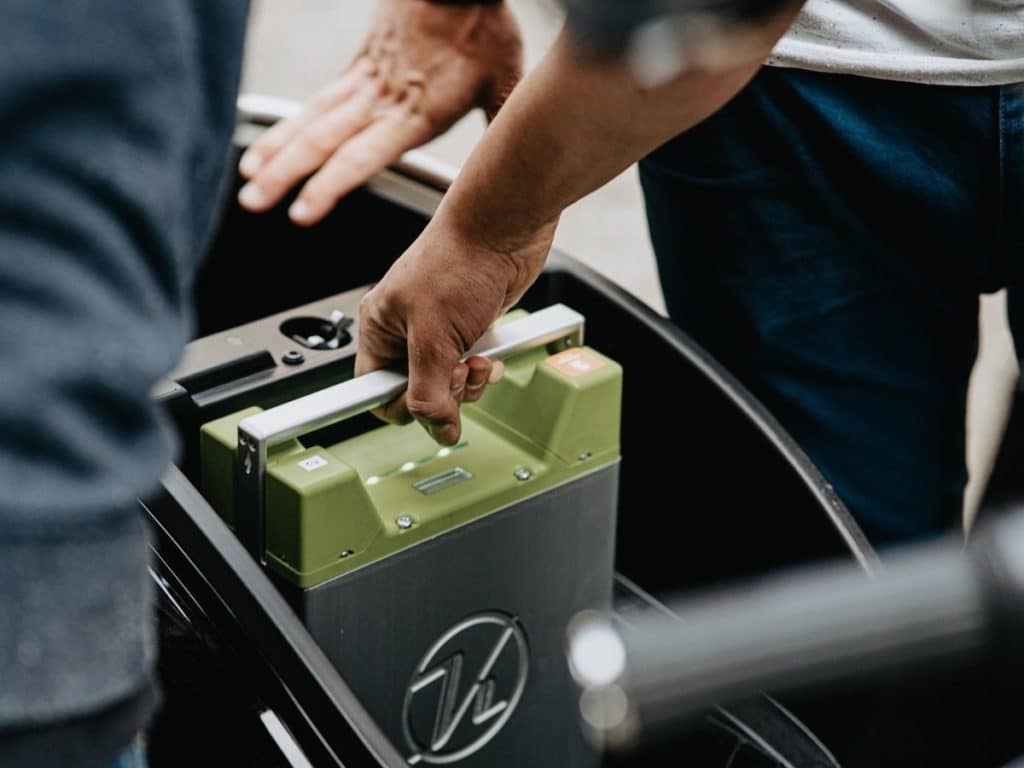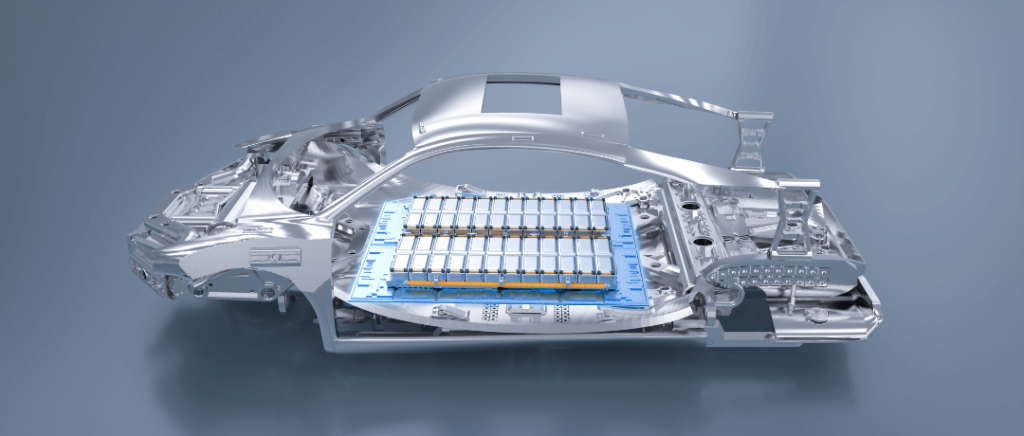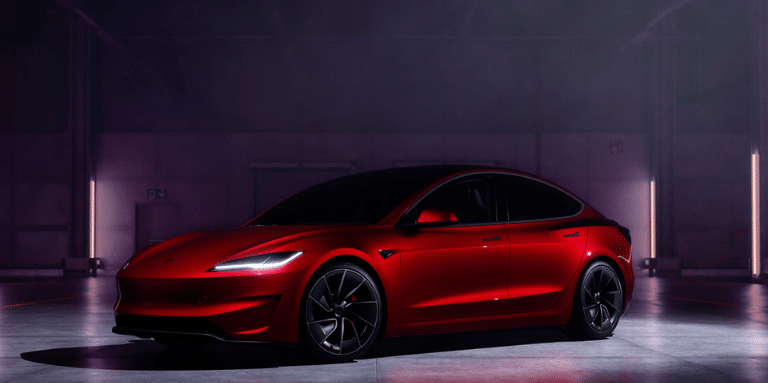How long does an electric car battery last?
First of all, it's worth looking at the average lifespan of an electric vehicle battery. It's very rare for an electric car battery to reach the end of its service life. That is, its capacity to conserve electricity is 0%. We therefore consider that a battery should be replaced when it has only 70% of its energy conservation capacity left, which is around 8 to 10 years of age.
At least, that's what carmakers are recommending. But replacing these batteries doesn't mean throwing them away. They are recovered for stationary storage.
Stationary storage makes it possible to store electricity on a large scale.
This system makes up for the shortcomings of renewable energy production. Wind and solar power are what we call "intermittent" energies. They depend on external factors that do not guarantee constant production. In this sense, stationary energy storage makes it possible to meet electricity needs when conditions are unfavorable for production.
This is one of the major challenges of the future, since by 2030 that 40% of electricity production will come from renewable sources.
Are electric car batteries recyclable? How are they recycled?
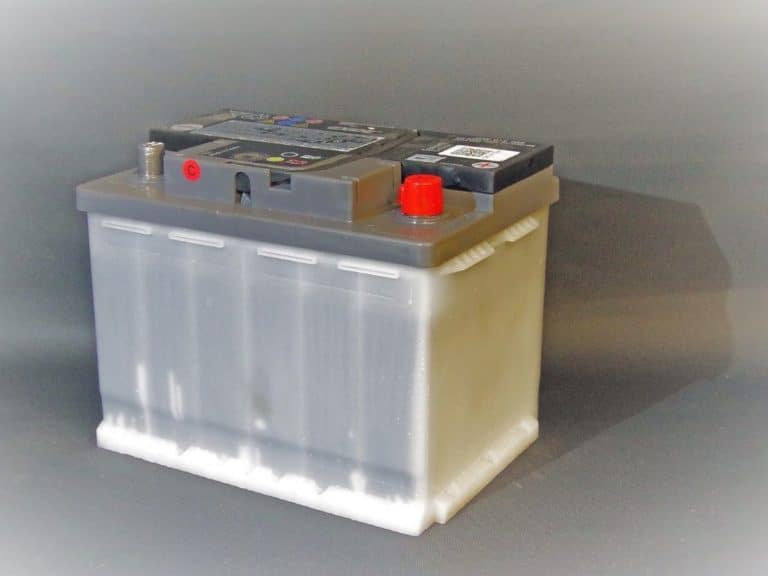
It seems obvious, otherwise we wouldn't be writing this article, but yes, electric car batteries can be recycled! We've already given you the lowdown on the previous point. But how can they be recycled?
An electric car battery is not always recycled in the same way as a telephone battery, for example.
Recycling involves a number of stages, which we describe in detail below:
- The battery is first discharged
- Remove the plastic, electronic and aluminum casing
- The cells retained in the battery cores are ground into a powder.
- The various metals contained in this powder are extracted and sorted by fire or chemistry.
When recycling batteries, a number of safety precautions must be taken. Most of these components are highly flammable and toxic.
The various metal recovery processes
Recycling plants use two different methods to extract and sort metals.
- Pyrometallurgy: This method separates metals by condensation. Lithium battery scrap is fed into a furnace. Three products emerge:
- dairy products
- ferrous metals
- non-ferrous metals
The slag is used for road fill and rock wool.
Ferrous metals are generally reused in TGV brake disks, for example, while non-ferrous metals require refining.
- Hydrometallurgy: metals are magnetically separated. This will separate ferrous from non-ferrous metals. The ferrous metals will be used in steel mills, while the non-ferrous metals will be treated with an acid solution to distinguish the elements destined for the metallurgy sector.
All these processes recover the precious elements contained in these batteries, in the form of ingots of raw material.
What can be recycled from a battery?

European regulations now require that at least 50% of the materials contained in a battery be recycled. Obviously, this percentage is well below what we are capable of recovering.
On average, we recycle 60% of the total weight of a 500 kg battery. This figure may vary according to the condition of the battery. In France, the battery recycling rate is 65%..
Certain rare metals such as lithium, cobalt cobaltnickel nickel or copper are 90% recoverable.
Electric car battery recycling: what's at stake?
Today, more than 220,000 electric vehicles are on the road in France. Each of these vehicles represents a gold mine if recycling is optimized. But why? The electric vehicle market is booming, but also in doubt. Manufacturers such as Tesla are pointing the finger at the Covid crisis, which is making it difficult to source certain materials essential to the production of electric vehicles. These include the semiconductor shortagebut a shortage of cobalt, another essential element in the construction of electric cars, is also predicted. By recycling batteries in the most efficient way, we can prevent certain shortages and avoid having to constantly import raw materials.
Another major challenge is that recycling electric car batteries can greatly reduce their environmental impact. Battery components are the most polluting and the hardest to extract. Their extraction requires enormous resources, both material and human. Their removal often results in pollution of local soils or waterways. So by maximizing recycling, we vigorously reduce our CO2 emissions during the production process. This makes the electric vehicle even more environmentally friendly than its internal combustion counterpart.
At the present time, on the overall cycle, an electric vehicle emits 9 tonnes of CO2, compared with 22 tonnes for internal combustion vehicles. The difference is particularly marked in the life cycle, where EVs emit 2.34 tonnes of CO2, compared with 18 tonnes for combustion engines. The shortcoming of the electric vehicle compared with combustion engines lies in manufacturing, where its production emits 6.57 tonnes of CO2, including 3.15 tonnes for battery manufacture alone. Reducing an electric vehicle's CO2 footprint at the production stage would widen the ecological gap with combustion-powered cars, and justify its purchase all the more.
Recycling: good for the economy?
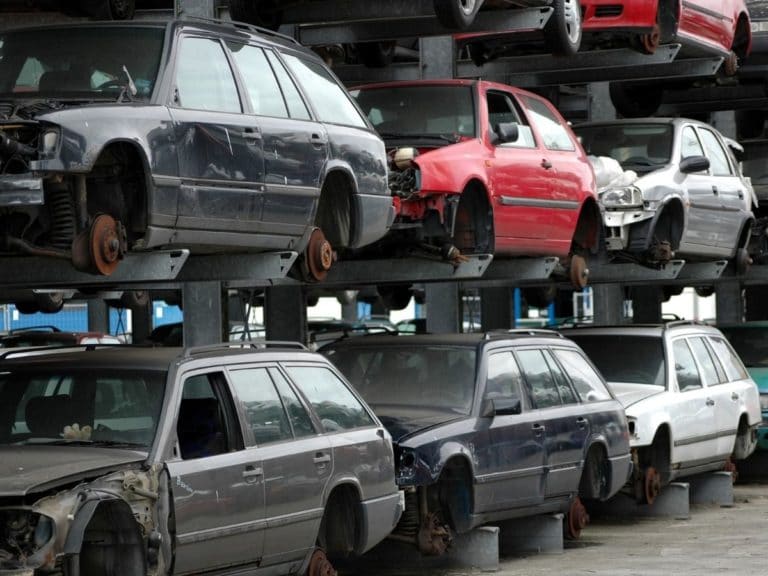
Another advantage of maximizing the recycling rate is that it could reduce the cost of electric vehicles in the long term.
Indeed, becoming less dependent on suppliers could help automakers cut production costs and thus lower purchase prices. Recycling batteries could reduce demand for lithium by 25%, cobalt by 35% and copper by 55%. In other words, no mean feat. With this in mind, thehe European Commission intends to make it compulsory to use recycled raw materials in production processes from 2030 onwards.. We're talking about 12% recycled cobalt, 4% lithium and 4% nickel.
Who's involved in recycling?
Many people have understood the importance of recycling in the automotive sector. Many players have made it their speciality. And that's just as well, because multiple players capable of recycling batteries means more recycled batteries.
One of Tesla's founders, for example, launched his own recycling plant in Redwood. There's also a start-up in Sweden called NorthVolt which has made recycling its core business.
In France, a major player has entered the field of electric car battery recycling. This is Oranoa French company specializing in nuclear fuel cycle engineering.
Orano and its industrial partners launch a pilot project to recycle batteries for electric vehicles. Project manager Didier David already predicts that more than 500,000 tonnes of batteries will be recycled by 2030. This figure could swell faster than expected, as interest in electric vehicles continues to grow in tandem with environmental concerns.
What are the dangers of recycling?
By recycling electric car batteries, in addition to recovering the cells for reuse, we also prevent them from ending up in the environment.
This can be particularly dangerous when you consider that these products are highly polluting. They can pollute soil and water, which can damage local flora and fauna. When these components inadvertently come into contact with living beings, they can affect the nervous and digestive systems. Some elements are also highly carcinogenic, harmful to the respiratory system and corrosive to the skin.
One of the most dangerous to nature is probably lithium. This raw material, widely used in batteries, is highly flammable as well as being toxic. If it catches fire, it releases smoke that is irritating and toxic to organisms, and is very destructive. Hydrogen fluoride, which is present in smaller quantities in electric vehicles, is another element that is highly hazardous to health. If it deteriorates in nature, contact with it can lead to eye irritation (conjunctivitis, keratitis, corneal opacities) and respiratory irritation (pharyngitis, laryngitis, chronic bronchitis, eventually bronchial stenosis, pulmonary stenosis and pulmonary edema).
With all these factors in mind, it's clear that the recycling of electric car batteries is a major challenge for the electric car industry in the future. Both for the sector itself and for the environmental issues surrounding it. And market players are well aware of this. That's why measures are taken on a daily basis by both local authorities and the European Commission. And that's why more and more companies are moving into this field, as we've seen with the Orano project and the Swedish start-up NorthVolt. Battery recycling is a key issue that goes beyond a simple ecological initiative. Its optimization could solve the problems of the world's biggest carmakers.


